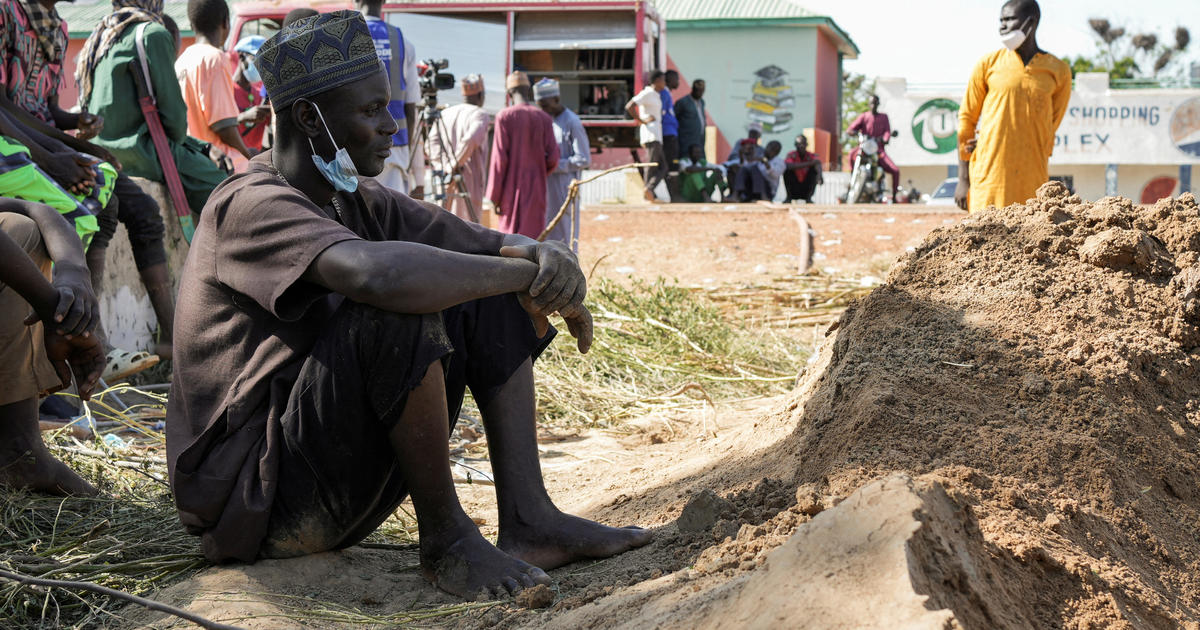The devastating tanker explosion in Majiya, Nigeria, serves as a stark reminder of the precarious conditions and inherent dangers faced by many across the nation. This tragic incident, which claimed the lives of over 140 people and left scores injured, underscores the complex interplay of factors contributing to such disasters – from inadequate road infrastructure to the desperate socioeconomic circumstances driving risk-taking behavior. The immediate aftermath, marked by a mass burial and overwhelming grief, highlights the profound human cost of this catastrophe, while simultaneously illustrating a wider problem prevalent in many developing nations. The incident’s occurrence during a time of economic hardship further emphasizes the vulnerable state of many Nigerians, forced to make perilous decisions due to desperate need. This analysis will explore the contributing factors, examine the broader context of road safety in Nigeria, and discuss the ongoing economic crisis further exacerbating this already volatile situation.
Devastating Aftermath and Contributing Factors
The scale of the tragedy is truly horrifying. Over 140 lives were lost, with many more suffering injuries, some severe enough to require hospitalisation at the nearby Ringim General Hospital. The horrifying details of the explosion, stemming from residents rushing to collect spilled fuel, only amplify the scale of this avoidable tragedy. This desperate act, driven by necessity and economic desperation, sadly underlines the underlying societal vulnerabilities in Nigeria.
The Role of Economic Hardship
The economic crisis currently gripping Nigeria played a significant role in this disaster. The recent removal of fuel subsidies, leading to substantial price increases, has pushed many Nigerians to the brink. Faced with rising costs of living, individuals resort to risky measures, making them vulnerable to tragic consequences. Collecting spilled fuel, while dangerous, might have been perceived as a necessary gamble for survival by those struggling economically.
Poor Road Infrastructure and Safety Standards
Nigeria’s road infrastructure has long been a point of concern, with reports of accidents regularly highlighting poor road conditions and a lack of effective safety measures. These poor conditions are a significant factor, increasing the likelihood of accidents and exacerbating their severity. A contributing factor, besides inadequate road maintenance and design, includes lax enforcement of safety regulations, contributing to an environment where risks are routinely underestimated. The lack of stringent safety protocols involving the transportation of hazardous materials like fuel exacerbates the risks.
The Broader Context of Road Safety in Nigeria
The Majiya tragedy is, unfortunately, not an isolated incident. Nigeria faces a persistent crisis regarding road safety. The World Health Organization’s 2018 report estimated roughly 40,000 road accident deaths annually, demonstrating a systematic and deeply ingrained issue that needs immediate attention. This highlights a much larger issue that demands comprehensive, multi-pronged solutions to prevent similar catastrophes.
The Frequency of Fuel Tanker Accidents
The number of fuel tanker-related accidents, with high casualty counts often reported, raises urgent concerns. The consistent reoccurrence of these types of accidents reflects the significant need for both safer transportation protocols and additional safety training for drivers transporting highly flammable goods. This pattern of incidents strongly points to systematic issues impacting the whole transportation sector in Nigeria, requiring widespread reforms for any meaningful improvements.
Systemic Issues Affecting Road Safety
Multiple interconnected issues affect road safety in Nigeria. These are compounded by poor vehicle maintenance standards, driver training shortcomings and the lack of robust enforcement systems. Until these issues are actively addressed with strategic and adequately funded intervention plans, similar tragedies are likely to occur in future.
Nigeria’s Economic Crisis and its Impact
Nigeria’s current economic hardship undeniably influences the vulnerability of its citizens. The country’s severe cost-of-living crisis, worsened by fuel price increases and an overall weakened economy, creates desperate situations where people might engage in high-risk actions to ensure survival. This economic precariousness directly contributes to an increase in the number of vulnerable individuals willing to take extreme measures to meet their daily needs.
Fuel Subsidy Removal and its Consequences
The removal of fuel subsidies, though aimed at stabilizing the economy in the long term, has immediately created significant hardship for the Nigerian people. The short-term consequences of price hikes greatly outweighed the anticipated long-term benefits, highlighting the need for alternative economic strategies which address the concerns of Nigeria’s citizens. Economic hardship is a vital contextual factor impacting people’s behavior and therefore necessitates a nuanced approach when evaluating tragedies.
Addressing the Crisis and Moving Forward
The tragic loss of life in Majiya demands an urgent, multifaceted response. This should start with investigations aimed at clarifying the underlying causes of the incident and formulating appropriate prevention measures for future events. Addressing Nigeria’s struggling economy and reducing the cost of living should be a priority. Investing in improved road infrastructure, implementing better driver training programs, and rigorously enforcing safety regulations are crucial steps. Additionally, public awareness campaigns should educate the population about the risks associated with spilled fuel and urge caution around accidents involving hazardous materials. The current government should proactively focus on improving these areas if long-term changes in preventing similar incidents are the aim.
Take Away Points:
- The Majiya tanker explosion highlighted the complex interplay of economic hardship, inadequate infrastructure, and systemic safety failures.
- Road safety in Nigeria requires a multifaceted approach addressing poor road conditions, driver training, enforcement, and economic challenges.
- The removal of fuel subsidies, while a necessary economic measure, must be implemented carefully, including providing support for vulnerable populations.
- Addressing Nigeria’s economic crisis is critical to reducing the risk of future incidents stemming from economic desperation.
- A combination of improved infrastructure, stricter regulations, better driver education and economic support measures is vital for effective long-term solutions.




